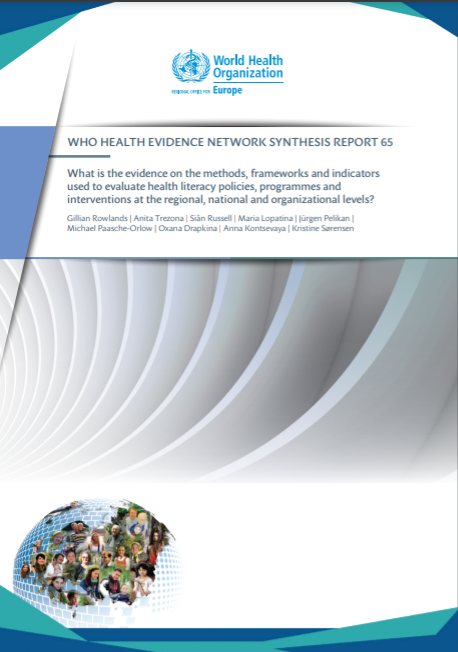
-
Source
What is the evidence on the methods, frameworks and indicators used to evaluate health literacy policies, programmes and interventions at the regional, national and organizational levels?
Although health literacy has long been a focus of attention in the WHO European Region, survey evidence in 2011 of eight Member States indicated that more than 47% of the adult population had suboptimal personal health literacy. Initiatives to prioritize health literacy in public policies include the WHO Shanghai Declaration, Health 2020, the European policy framework that supports action across government and society for health and well-being, and the Health Evidence Network report on health literacy policies in the WHO European Region. This review identifies evidence on the methods, frameworks, measurement instruments, domains and indicators used to evaluate health literacy policies, programmes and interventions at all levels. Limited evidence was found on evaluation of national policies and programmes, but local programmes and interventions have been measured using quantitative, qualitative and mixed-methods approaches. Policy considerations include the development of frameworks and indicators covering a range of domains to enable consistent and comparable population monitoring and evaluations to determine the impact and effectiveness of national policies and programmes.




